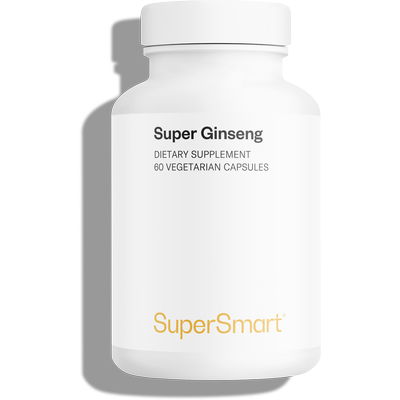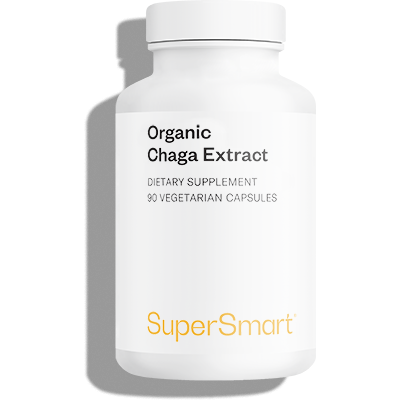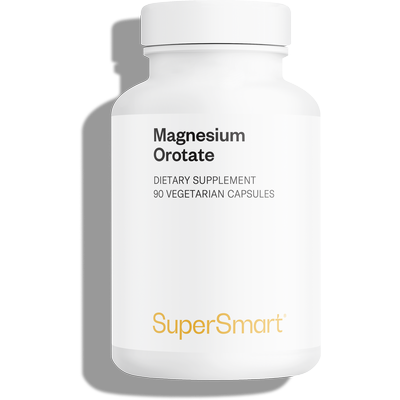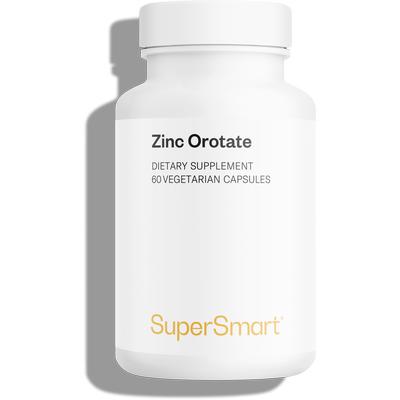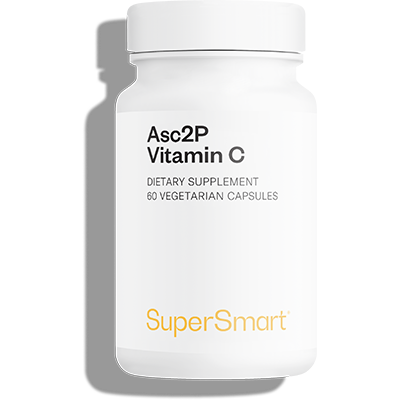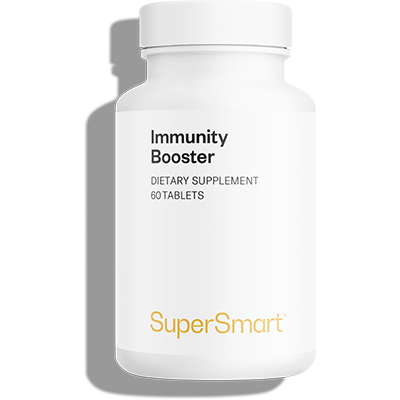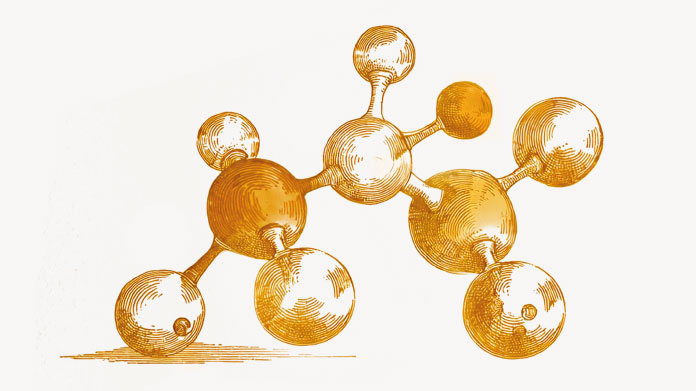Which supplements should you take in winter?
Cold weather, viruses, reduced daylight, being cooped up … winter is a season conducive to ailments and fatigue. The good news is you can boost your resistance by discovering which supplements to take over the winter months.

The best vitamins for winter
Main differences between hot and cold seasons
It’s easy to be in tip-top shape in summer: it’s a time when we eat plenty of fresh, raw fruits and vegetables rich in vitamins, and our skin gets lots of exposure to sunlight. We’re brimming with energy and vitality.
But in winter the reverse is true. We tend to eat fewer fresh fruits and vegetables and more starchy, fatty foods. So not only does our vitamin intake fall but our gut microbiota is also put under strain. And a balanced microbiota is essential for good mental health, immunity and vitality.
What’s more, we spend more time cooped up inside in winter, which affects our mood, especially as we have less exposure to daylight.
That’s why the two best vitamins to take in winter are, of course, vitamin C and vitamin D.
Benefits of vitamin C in winter
Ascorbic acid, the other name for vitamin C, plays a role in many mechanisms in the body. It supports:
- normal energy metabolism;
- normal nervous system function;
- normal psychological function;
- normal immune system function;
- reduced fatigue;
- regeneration of vitamin E in its reduced form;
- digestive absorption of iron;
- normal formation of the collagen needed for blood vessels, bones, cartilage, skin, teeth and gums to function properly;
- protection of cells against free radicals (antioxidant effect) (1-3).
Fighting oxidative stress, supporting the immune system, combatting fatigue: three excellent reasons for boosting your intake of vitamin C in winter (with, for example, Asc2P a phosphorylated ascorbate supplement, 20 times more powerful than regular vitamin C).
Vitamin D and reduced daylight
Vitamin D exists in two forms:
- vitamin D2, ergocalciferol, produced by plants;
- vitamin D3, cholecalciferol, from animal sources, which is the form naturally produced by our skin on exposure to UVB rays.
Essential to health, vitamin D is involved in the differentiation and activity of immune system cells, as well as hormone regulation (4-6).
Specifically, vitamin D biosynthesis is initiated primarily in the skin where UVB rays react with 7-dehydrocholesterol (provitamin D in the skin) to produce pre-vitamin D3, which is isomerised to cholecalciferol (or vitamin D3) (7).
But in winter:
- we spend much of our time cooped up inside, behind windows which block a large part of UVB;
- the ratio between UVA and UVB solar radiation varies throughout the year, with northern hemisphere populations receiving lots of UVA in winter but very little UVB (8).
So it’s particularly advantageous to supplement with vitamin D at this time of year to compensate for this low exposure to sunlight (with, for example, Vitamin D3 5000 IU, which provides a substantial dose).
The best supplement for the immune defences
Effects of winter on immune status
In winter, our immune systems are really put to the test. The cold weather induces vasoconstriction which, while improving the circulation, slightly slows down our immune response.
What’s more, a recent American study showed that the cold also triggers a decrease in production of extracellular vesicles, particles responsible for recognising viruses and stopping them multiplying (9).
Last but not least, in warming up the air entering our lungs, the body produces a lot of mucus which dries out the respiratory tract, reducing its protection and making it more permeable to viruses.
The key mineral for immunity
It’s therefore especially important to support our immune defences in winter, and in this respect, zinc appears to be the best mineral.
Long-considered unimportant because of its low concentrations in the body, zinc is actually a key trace-element, participating in more than 300 enzymatic processes:
- it helps protect cells against oxidative stress;
- it plays a role in cell division;
- it supports normal DNA synthesis;
- it contributes to normal macronutrient metabolism;
- and above all, it supports normal immune system function.
This is because zinc increases activation of B lymphocytes, which produce antibodies, and T lymphocytes, which clear infected cells, two key weapons for protecting the body against winter ills (10). Zinc is predominantly found in seafood, red meat, and at higher doses, in zinc supplements such as Zinc Orotate).
Synergy between zinc and an immunostimulant plant
Echinacea, meanwhile, is a medicinal plant widely-used by Native Americans for supporting immunity and respiratory health.
In many formulations, therefore, zinc is combined with echinacea to help ensure a problem-free winter (one such product is Immunity Booster, a combination of zinc, echinacea extract, beta-glucans and vitamin C). These synergistic formulations are generally considered to be the best possible supplements for immunity.
Winter fatigue: which supplements should you take?
Winter and energy depletion
Cold winter temperatures mean the body uses a lot of energy to stay warm - good for those trying to lose weight with minimum effort, but not so great for vitality.
So to combat winter fatigue, it may help – alongside the vitamins mentioned above – to take dietary supplements that fight fatigue and stimulate vitality.
Magnesium for fighting winter fatigue
Magnesium is one of the body’s most important minerals, along with sodium, potassium and calcium. This electrolyte is involved in over 300 metabolic reactions in the human body. It plays a particular role in nerve transmission.
Magnesium thus:
- supports electrolyte balance;
- helps to maintain normal energy metabolism;
- supports normal nervous system function;
- helps maintain normal psychological function;
- and most of all, helps to reduce fatigue (11-13).
So to combat winter fatigue, consider supplementing with magnesium (for example, the product Magnesium Orotate).
The benefits of ginseng supplements
The undisputed star of Chinese medicine, ginseng is one of the most sought-after and widely-studied medicinal plants, especially for combatting winter fatigue and lack of energy.
The plant’s numerous benefits are due to its ginsenosides. These compounds appear to act by modulating neurotransmission in the brain and increasing NK (Natural Killer) cell activity, phagocytosis and interferon production, while at the same time, improving microcirculation.
We can see that ginseng works on different aspects of health and helps maintain physiological normality, which is why the plant is considered an adaptogen.
Today, ginseng is recognised for supporting:
- immunity;
- cognitive and physical performance;
- sexual health;
- vitality (14-15).
It therefore represents a potent anti-fatigue agent perfect for the winter months (which you can find in the supplement Ginseng 30%).
Chaga, the secret ingredient used by Siberians to withstand winter ills
A mushroom that grows exclusively on birch trees, chaga has been part of the Siberian pharmacopoeia for thousands of years.
A star plant of traditional medicine in cold regions subject to particularly harsh winters that demand a lot of the body, chaga is traditionally used by the nomads of Siberia to make an invigorating tea for combatting fatigue, cold, hunger and winter ailments (16).
Chaga contains more than 200 active substances, though recent studies suggest it is its high content of beta-glucan polysaccharides which is responsible for its powerful benefits.
That’s why many herbal therapists recommend taking chaga in winter to ward off winter ills (for example, Organic Chaga Extract).
SUPERSMART ADVICE
References
- https://www.anses.fr/fr/content/vitamine-c
- THOMAS, W. R. et HOLT, P. G. Vitamin C and immunity: an assessment of the evidence. Clinical and Experimental Immunology, 1978, vol. 32, no 2, p. 370.
- EFSA PANEL ON DIETETIC PRODUCTS, NUTRITION AND ALLERGIES (NDA). Scientific Opinion on the substantiation of health claims related to vitamin C and reduction of tiredness and fatigue (ID 139, 2622), contribution to normal psychological functions (ID 140), regeneration of the reduced form of vitamin E (ID 202), contribution to normal energy‐yielding metabolism (ID 2334, 3196), maintenance of the normal function of the immune system (ID 4321) and protection of DNA, proteins and lipids from oxidative damage (ID 3331) pursuant to Article 13 (1) of Regulation (EC) No 1924 ... EFSA Journal, 2010, vol. 8, no 10, p. 1815.
- Liu PT, Stenger S, et al. Toll like receptor triggering of a vitamin D mediated human antimicrobial response. Science, 2006, 311 : 1770.
- Rapport de l’Académie nationale de médecine. Statut vitaminique, rôle extra osseux et besoins quotidiens en vitamine D. Bull Acad Natle Med. 2012, 196, 1011.
- Laird E, Rhodes JM and Kenny RA. Vitamin D and inflammation : potential implications for severity of Covid-19. Irish med J, 2020, 113 : 81.
- Vitamine D : métabolisme, régulation et maladies associées, Emilie Tissandié, Yann Guéguen, Jean-Marc A. Lobaccaro, Jocelyne Aigueperse, Maâmar Souidi, MEDECINE/SCIENCES 2006 ; 22 : 1095-100
- NISHIMURA, Kazuki, IKEHATA, Hironobu, DOUKI, Thierry, et al.Seasonal Differences in the UVA/UVB Ratio of Natural Sunlight Influence the Efficiency of the Photoisomerization of (6‐4) Photoproducts into their Dewar Valence Isomers. Photochemistry and Photobiology, 2020.
- HUANG, Di, TAHA, Maie S., NOCERA, Angela L., et al.Cold exposure impairs extracellular vesicle swarm–mediated nasal antiviral immunity. Journal of Allergy and Clinical Immunology, 2023, vol. 151, no 2, p. 509-525. e8.
- WESSELS, Inga et RINK, Lothar. Micronutrients in autoimmune diseases: possible therapeutic benefits of zinc and vitamin D. The Journal of nutritional biochemistry, 2020, vol. 77, p. 108240.
- FARYADI, Qais. The magnificent effect of magnesium to human health: a critical review. International Journal of Applied, 2012, vol. 2, no 3, p. 118-126.
- GALLAND, L. Magnesium and immune function: an overview. Magnesium, 1988, vol. 7, no 5-6, p. 290-299.
- EFSA PANEL ON DIETETIC PRODUCTS, NUTRITION AND ALLERGIES (NDA). Scientific Opinion on the substantiation of health claims related to magnesium and “hormonal health”(ID 243), reduction of tiredness and fatigue (ID 244), contribution to normal psychological functions (ID 245, 246), maintenance of normal blood glucose concentrations (ID 342), maintenance of normal blood pressure (ID 344, 366, 379), protection of DNA, proteins and lipids from oxidative damage (ID 351), maintenance of the normal function of the immune system (ID 352), maintenance of normal blood pressure ... EFSA Journal, 2010, vol. 8, no 10, p. 1807.
- PENG, Yuqing, PAN, Wenting, CAO, Xixi, et al.Potential Oral Health Benefits of Ginseng and Its Extracts. International Dental Journal, 2023.
- KANG, Soowon et MIN, Hyeyoung. Ginseng, the'immunity boost': the effects of Panax ginseng on immune system. Journal of ginseng research, 2012, vol. 36, no 4, p. 354.
- LU, Yangpeng, JIA, Yanan, XUE, Zihan, et al.Recent developments in Inonotus obliquus (Chaga mushroom) polysaccharides: Isolation, structural characteristics, biological activities and application. Polymers, 2021, vol. 13, no 9, p. 1441.
3 Days
Efficiency and speed
Efficiency and speed
Cuccie
5 Days
GOOD BRAND IN FOOD COMPLEMENTS
GOOD BRAND IN FOOD COMPLEMENTS - SERIOUS WITH GOOD DOCUMENTS AND DETAILS SCIENTIST. AND SERIOUS HONNEST COMMERZIALISATION. I HAVE TRUST IN THEIR PRODUCTS.
FENOGLIO Guy
7 Days
Very good experience
Very good experience, the products arrived in time, in perfect condition and are good quality. Thank you.
GABI TIRCOCI
12 Days
very good expereince
very good expereince
Jelena Đaković
12 Days
Very good products.
Very good products.
Agnes BENDSAK
15 Days
Just OK
Just OK, ordering from company for many years and being safisfied
Lynn Mae
15 Days
Recomendo
Produtos encomendados são recebidos atempadamente e de acordo com o anunciado! Muito satisfeita!
Carla Sofia
16 Days
Everything is great!
Everything is great!
Jonas
21 Days
The delivery was fast and the product…
The delivery was fast and the product is great
SOMMARIVA Gianni
22 Days
Great service and lots of information
Great service and lots of information
Gabi
25 Days
Service Satisfaction
I’m satisfied with the service; it fulfilled what it set out to do.
Anfhony Abreu
28 Days
Original product and fast delivery
Original product and fast delivery. I haven't started it yet, but will do soon.
Vincenza Catania
30 Days
Good quality
Good quality. Good service.
Leonel Guzman
32 Days
Top!!!!!!!!
Top!!!!!!!!
Michael
34 Days
Excellent!
Products are great and delivered fast!
PARDINI Debora
of experience
your money back
##montant## purchase


